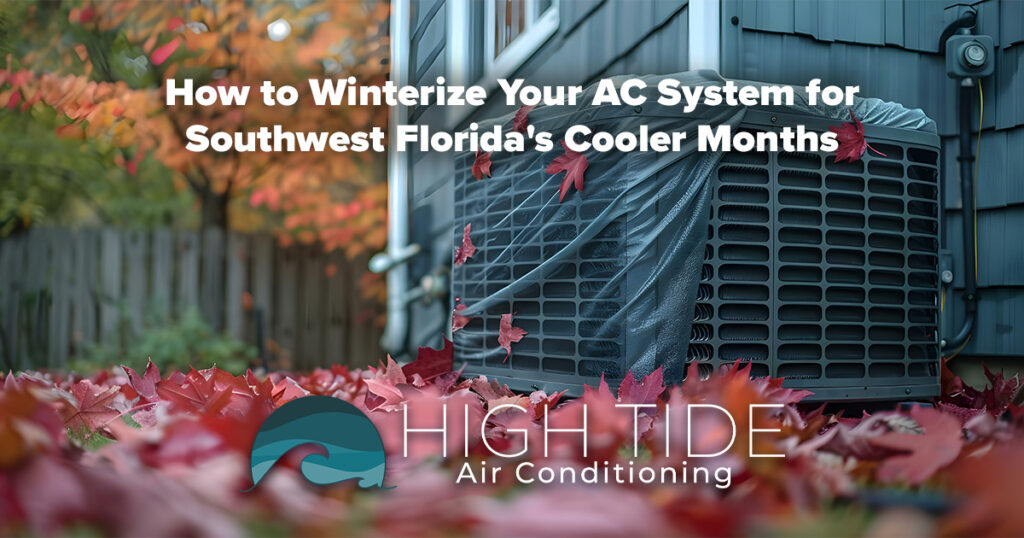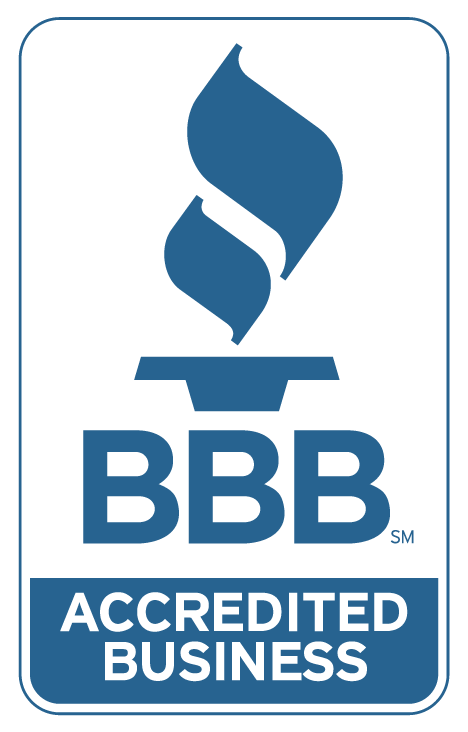Even though winters in Southwest Florida are mild, it’s still essential to prepare your air conditioning system for the cooler months. Winterizing your AC doesn’t mean shutting it down completely, but it does involve a few key steps to ensure your system remains in peak condition when it’s not in heavy use. Proper winterization will not only help maintain the longevity of your unit but also make sure it’s ready to jump back into action once the heat returns in full force.
Here’s how to effectively winterize your AC system and keep it in top shape for the next season.
Clean or Replace Air Filters
Your air filters have been working hard all summer, collecting dust, debris, and allergens from the air. With winter approaching, it’s an excellent time to clean or replace them, even if your AC use will be reduced. Clean filters not only improve your indoor air quality but also help your system operate more efficiently when it’s needed. A dirty filter can restrict airflow and cause unnecessary strain on your HVAC system.
Whether your system is running in cooling or heating mode, clean filters are essential to maintaining its overall performance and efficiency throughout the winter months.
Inspect and Clean the Outdoor Unit
Your outdoor condenser unit has likely seen plenty of wear during the long, hot summer months, so giving it a little TLC is key to keeping it functioning smoothly. Start by clearing away any debris, such as leaves, twigs, and dirt, that may have accumulated around the unit. This helps maintain proper airflow and reduces the risk of clogs or damage.
Next, consider hosing down the condenser coils to remove dirt and grime that may have built up over the summer. Clean coils ensure your system can operate efficiently when you need it again next season. Be sure to turn off the power to the unit before cleaning it, and avoid using high-pressure settings to prevent damaging the coils.
Check for Leaks or Damage
Now’s the time to inspect your AC system for any signs of leaks, wear, or damage. Look at the refrigerant lines, electrical connections, and the unit’s overall condition. If you notice anything unusual—like refrigerant leaks, loose wiring, or strange noises—it’s a good idea to schedule a professional inspection. Finding minor issues early can save you from costly repairs in the future and ensure your system is in prime condition when you need it most.
Regular inspections can also alert you to issues that may be easily overlooked, such as worn-out insulation on refrigerant lines or small cracks in ductwork.
Adjust Your Thermostat Settings
As the weather cools down, your cooling needs will naturally decrease. Adjusting your thermostat accordingly can help reduce wear on your AC system and save on energy costs. If you have a programmable or smart thermostat, consider setting it to “off” or “auto” for extended periods during the winter. However, be mindful that Florida’s weather can be unpredictable, and there may still be warm days when cooling is necessary.
Setting your thermostat to a higher temperature when you’re away from home during the day can also help reduce unnecessary use of the AC while ensuring your system isn’t overworking during cooler months.
Cover or Protect the Outdoor Unit (If Needed)
While Southwest Florida doesn’t experience harsh winters, covering your outdoor condenser unit can still be beneficial. A breathable cover can help protect the unit from debris buildup, dirt, and moisture, which contributes to corrosion or rust over time. If you choose to cover your unit, verify the cover allows proper airflow to prevent mold or mildew from forming inside.
Alternatively, if you live in an area with heavy foliage or frequent storms, placing a tarp or other protective barrier around the unit can shield it from fallen leaves, branches, or heavy rain.
Switch the Ceiling Fans to Reverse
This may seem unrelated to your AC system, but using your ceiling fans properly during the cooler months can help distribute warm air more efficiently throughout your home. By reversing the direction of your ceiling fans (usually via a small switch on the fan itself), you can create an upward draft that circulates warm air trapped near the ceiling down into the living areas. This can help reduce your reliance on your heating system, allowing you to maintain a comfortable indoor climate without overworking your HVAC system.
This simple step can ease the load on both your AC and heating systems while keeping you comfortable throughout the winter.
Schedule Preventive Maintenance
The best way to ensure your AC system is ready for the upcoming summer is to schedule a preventive maintenance visit from a reputable HVAC company during the winter months. Identify and address any potential issues that may have developed over the summer, such as refrigerant leaks, worn-out components, or inefficient operation. By taking care of these problems now, you’ll avoid unexpected breakdowns when you need your AC the most.
Regular maintenance also helps your system operate at peak efficiency, extending its lifespan and ensuring it can handle the intense summer heat when it returns.
Keep an Eye on Humidity Levels
Even during the winter months, humidity levels in Southwest Florida can remain high. Excess humidity can lead to mold growth, indoor discomfort, and strain on your HVAC system. Consider using a dehumidifier to keep indoor humidity levels in check, especially in rooms that tend to retain more moisture, like bathrooms or kitchens.
Maintaining proper humidity levels not only enhances your comfort but also protects your AC system from moisture-related issues, helping it function better when you need it again.
Visit our website to explore our AC services or call 239.763.1811 to schedule an appointment. Proudly serving Southwest Florida home and business owners, we look forward to working with you for all your HVAC needs, this December and beyond.


